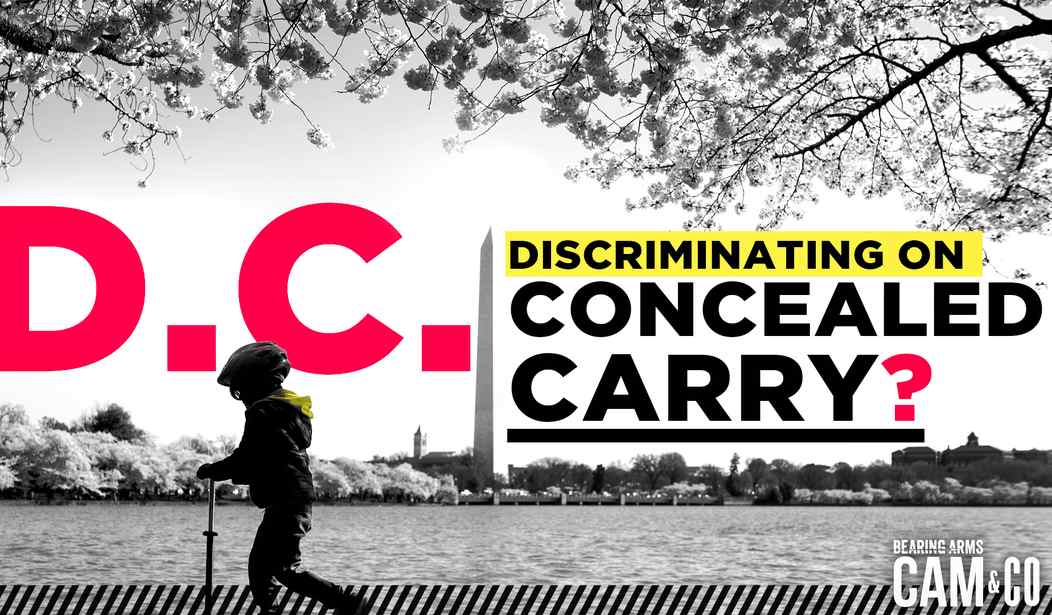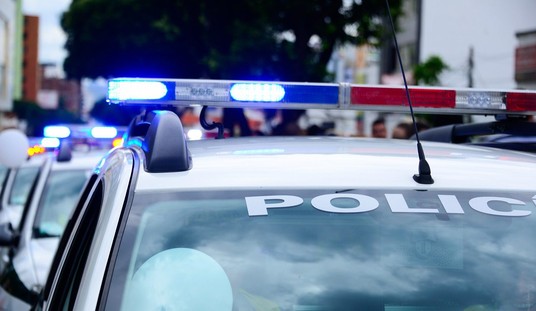One of the primary benefits to “shall issue” concealed carry laws is that they’re supposed to curtail the ability of governments to arbitrarily and subjectively decide who’s worthy of exercising their fundamental right to carry a firearm in self-defense. As we’ve seen in the wake of the Supreme Court’s decision in NYSRPA v. Bruen, however, even states that supposedly adopt “shall-issue” language can insert provisions granting authorities the same ability to use their own subjective opinions to approve or deny permit applications through “good moral character” or “suitability” standards.
Washington, D.C. is one of those “shall issue” jurisdictions that still gives broad leeway to authorities to approve or deny concealed carry applications, and now the District is the subject of a new federal lawsuit alleging that there’s discrimination taking place within the approval process, with black applicants less likely to receive a license thanks to the District’s policies.
When D.C. security guard Sanu Millard turned 21, he decided he wanted a concealed-carry license. He carried guns at work in the District, Maryland and Virginia. He had been trained to use guns safely as a teenager and had legally registered two weapons. He had no criminal record. And, as the Supreme Court interprets the Second Amendment, carrying a gun is his right as an American citizen.
But when Millard tried to get a concealed-carry license from D.C. police in 2019, his request was denied. Even though he had never been arrested, police said his involvement in domestic violence incidents — incidents in which, he says, he and his mother were victims — disqualified him.
.. Though some men in the lawsuit were denied licenses because of legal technicalities, Millard’s denial was more personal: Police said his involvement in domestic incidents makes him unsuitable for a license even though there’s no indication he instigated them.
In one incident, according to the suit, Millard’s mother’s boyfriend pushed him and bloodied his lip. In another, the boyfriend told police Millard had “mental health issues.”
Millard was never arrested or charged with a crime.
“They didn’t even put handcuffs on me,” he said.
Despite this, Millard was refused a concealed-carry license because he had a “propensity for violence or instability,” according to police.
Keep in mind that Millard is still able to legally own a firearm in Washington, D.C. He’s able to lawfully carry his firearm in Virginia. He’s not prohibited by law from keeping or bearing arms; he’s prohibited by law enforcement from bearing arms in Washington, D.C. because the Metropolitan Police Department claims he has a propensity for violence; a provision that allows D.C. to deny concealed carry applications for anyone “involved” in crimes, whether or not they ever faced formal charges or even (in Millard’s case) if they were the victim of a crime.
Joseph Scrofano, one of Millard’s attorneys, said the litigation is not trying to stop reasonable gun laws. It is trying to stop unfair enforcement, he said.
“The existing process gives the chief [of police] unfettered discretion to pick and choose who gets to carry and … disproportionately disqualify African American men,” he said.
Michael R. Ulrich, an assistant professor of health law at Boston University who has studied gun violence, said in an interview that the Supreme Court’s ruling makes it difficult for lower courts to uphold gun restrictions. Fewer gun restrictions means more guns on the street — which means police may assume people are armed when they aren’t.
“More people carrying weapons, especially in densely populated areas like the District, is going to increase gun violence,” he said. “Black men are at significant risk.”
D.C.’s homicide rate was actually higher back when it banned handguns outright, so I don’t buy Ulrich’s argument that more people exercising their right to carry is going to make the District a more dangerous place. Heck, even now in the District and the surrounding suburbs the lowest crime rates are found in the “shall issue” state of Virginia, not D.C. or Maryland where the gun laws are far more restrictive.
All of which is absolutely irrelevant to the facts at hand here. Regardless of what Ulrich thinks about the right to carry, none of the plaintiffs in this case are barred from owning a firearm, yet the District is still refusing to recognize their right to bear one in self-defense. That’s a problem, and I’m glad to see Millard and his fellow plaintiffs are challenging D.C.’s subjective concealed carry standards in court.
You can read the class action complaint here, and we’ll hopefully have more to report on this case next week.









Join the conversation as a VIP Member